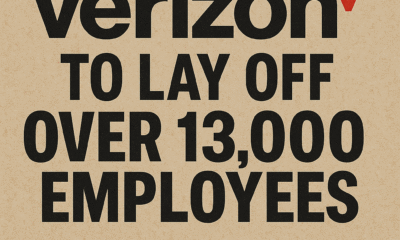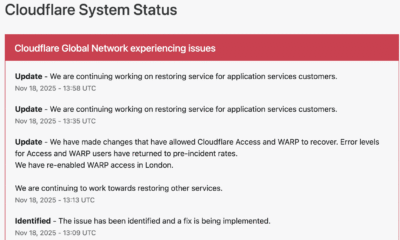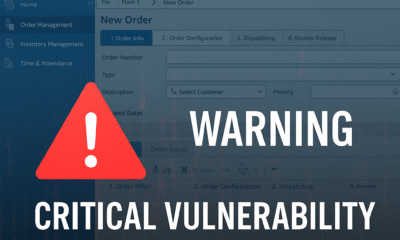business
Why Morocco’s Merchants Still Reject Card Payments — And How to Fix It
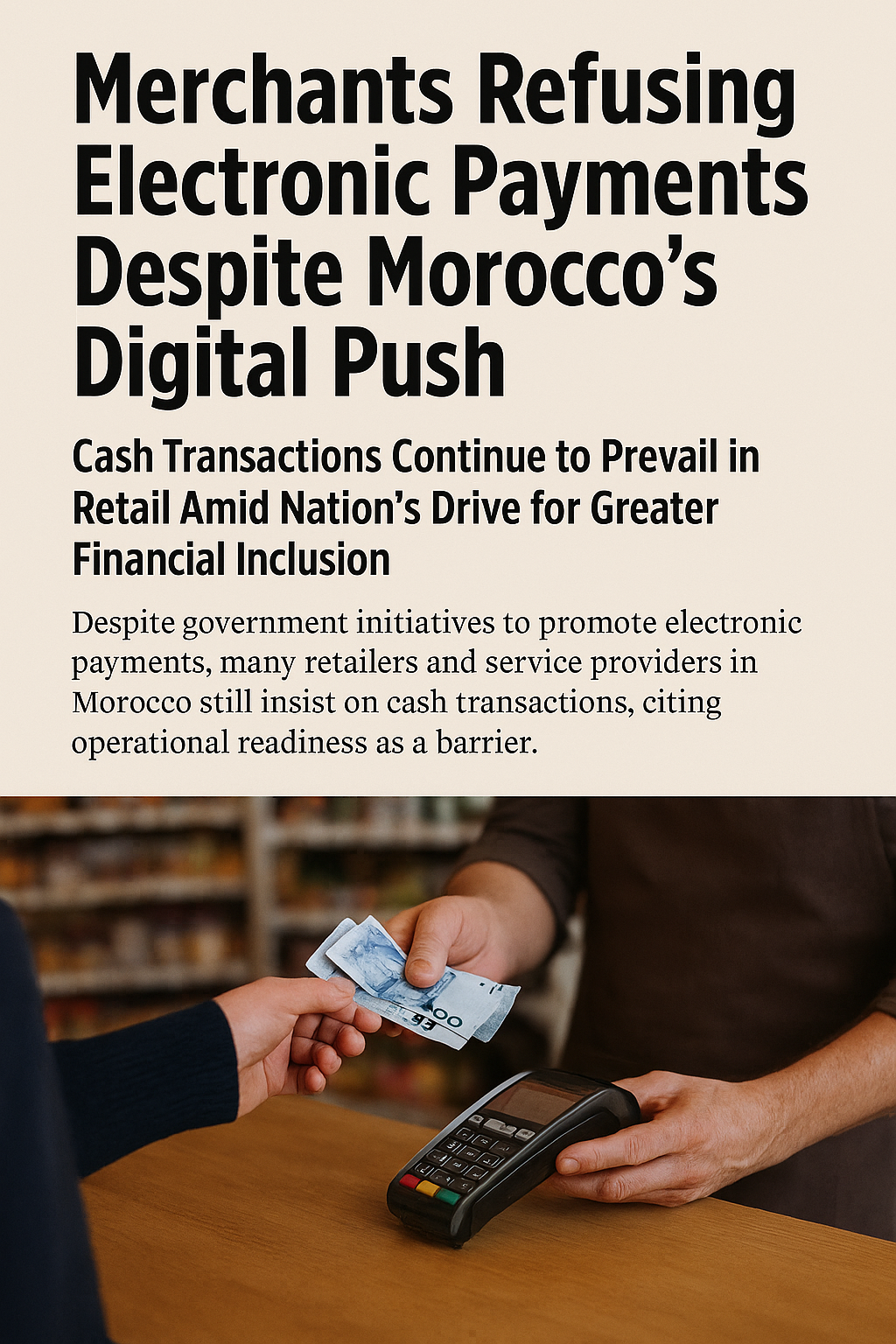
Despite national reforms and global ambitions, many Moroccan businesses still reject bank card payments — undermining efforts toward financial inclusion and digital readiness. Experts call for urgent enforcement, education, and incentives.
Casablanca – August 5, 2025
As Morocco embraces its digital transformation and global responsibilities — from hosting the 2025 Africa Cup of Nations to preparing for the 2030 FIFA World Cup — a stubborn local issue risks derailing its progress: many businesses are still refusing to accept electronic payments, demanding cash even when point-of-sale (POS) infrastructure is available
From coffee shops and retail outlets to full-service restaurants in Casablanca, Rabat, and Agadir, citizens continue to be denied card transactions, often under the guise of “technical issues,” “system incompatibility,” or outright refusal.
“It feels like we’re trapped in the past,” said Amina H., a Rabat resident. “They invest in décor and branding but won’t accept a debit card — how is that modern?”
A Growing Disconnect Between Policy and Practice
Despite Morocco’s advances in fintech and public investment in payment infrastructure, the circulation of physical cash increased by 8% in 2024, according to Bank Al-Maghrib — a paradox in a country publicly promoting financial modernization.
Experts attribute this regression to merchant resistance, with some businesses preferring cash to avoid taxation, while others cite lack of training or outdated systems.
Consequences for Financial Inclusion and Tourism
This behavior undermines Morocco’s financial inclusion strategy, especially for:
- Youth and digital-only customers, who depend on mobile wallets.
- International visitors, who expect contactless or card options.
- Small businesses, which are excluded from formal credit and growth tools due to cash-based opacity.
For a country aiming to present a world-class image during global sporting events, the lack of consistent digital payment acceptance could damage its reputation and frustrate tourists expecting modern financial convenience.
What Can Be Done: Solutions to Close the Digital Gap
Policymakers, economists, and civil society leaders have proposed a multi-pronged approach to solve Morocco’s digital payment impasse:
1. Mandatory Enforcement of POS Acceptance
The Ministry of Finance and the Tax Directorate should enforce existing laws requiring registered businesses to accept card payments. A tiered fine system could be introduced for repeat violations, while also offering a grace period for compliance.
2. Merchant Training & Technical Support
Launch a nationwide campaign to educate businesses on:
- How POS systems work.
- How to reduce transaction fees.
- The long-term benefits of formalization.
Partnering with banks and fintech providers can ensure on-site installation and tech support for reluctant merchants.
3. Incentives for Digital Compliance
Offer tax credits, POS subsidies, or reduced transaction fees for small businesses that adopt digital payments — especially in rural or informal sectors. This will shift the equation from penalty-based to opportunity-based compliance.
4. Expand Mobile Payment Ecosystems
Encourage the expansion of QR code-based solutions, mobile wallet apps (like Inwi Money, CIHPay, and MT Cash), and interoperability between bank and telco-based platforms, allowing even micro-merchants to transact digitally without expensive equipment.
5. Public Transparency and Ratings
Introduce a public registry or rating system listing vendors that comply with digital acceptance norms — giving visibility to modern businesses and helping consumers make informed choices.
Government and Civil Society Pushback Begins
Responding to the backlash, the Ministry of Digital Transition has already proposed stricter guidelines for tourism-dependent businesses in urban zones, with plans to make electronic payment capability mandatory by early 2026 for companies operating in regulated sectors.
Meanwhile, civil society organizations like “Morocco Without Cash” have launched awareness campaigns encouraging citizens to boycott cash-only businesses and report violators through social platforms.
Conclusion
As Morocco strides into a future shaped by digital transformation and global visibility, it cannot afford to let a fragmented payment culture stall its progress. Bridging the divide between national ambition and local practice will require firm enforcement, inclusive incentives, and a mindset shift — one that embraces transparency, modernization, and inclusion at all levels of the economy.
business
Verizon Slashes Jobs in Record-Breaking Layoff — Here’s What We Know
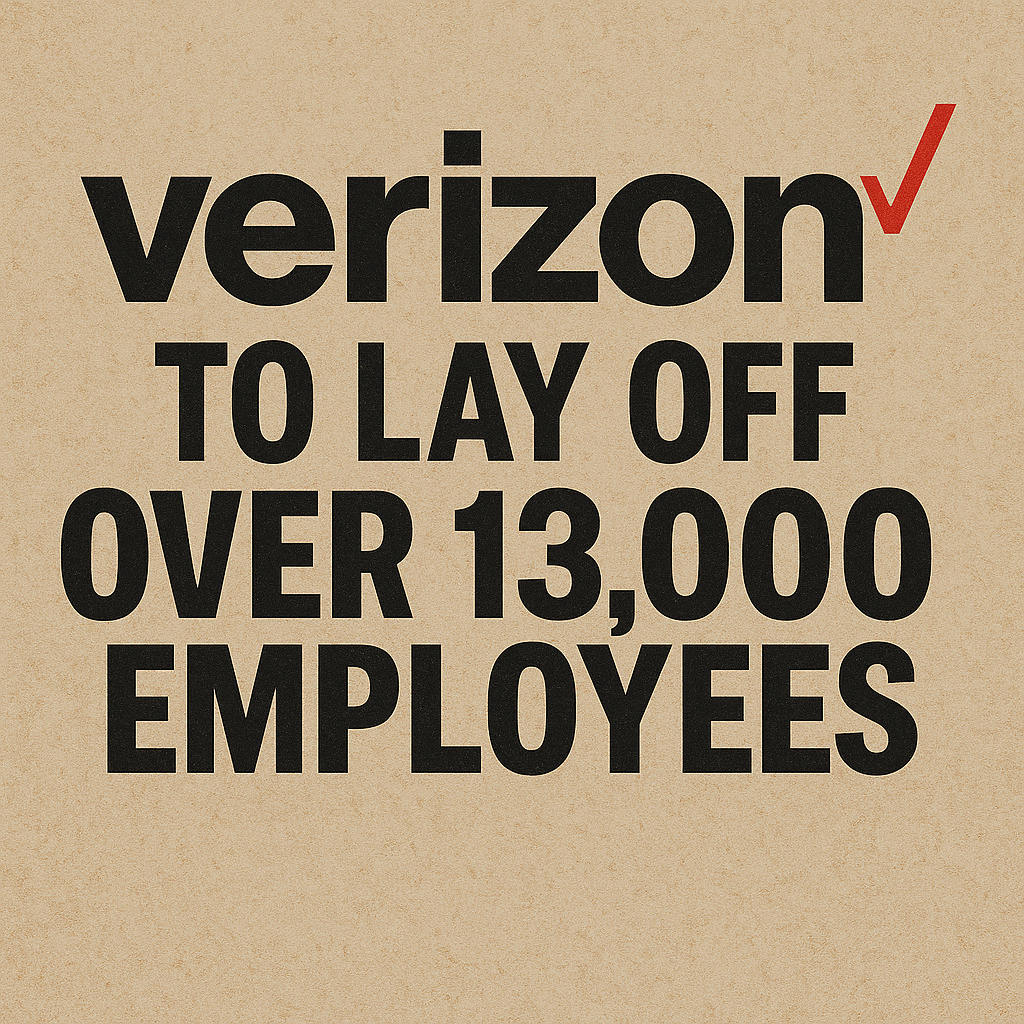
Verizon announced a sweeping workforce reduction that will affect “more than” 13,000 employees — roughly 13% of its global headcount — in what CEO Dan Schulman calls the company’s largest-ever layoff. In an internal memo, Schulman says the move is intended to “simplify our operations to address the complexity and friction that slow us down and frustrate our customers.” The company also plans to cut outsourced and outside labor costs significantly. U.S.-based staff will begin receiving notifications today; employees outside the U.S. will be informed in the “coming weeks,” the Wall Street Journal reports
What Verizon says
- Reason: operational simplification and removing friction that hurts customer experience.
- Scale: “more than” 13,000 roles, about 13% of the workforce.
- Outsourcing: a significant reduction in outsourced and outside labor spending is part of the plan.
- Timing: U.S. notifications begin immediately; international notifications will follow.
Immediate impact
- Employees: tens of thousands will be affected directly or indirectly. U.S. notifications beginning today means many workers will learn their status immediately.
- Operations: Verizon says the goal is to reduce complexity and improve service — but short-term disruption to teams and projects is possible as roles are consolidated.
- Customers: Verizon frames the change as a way to speed decision-making and improve customer experience, though execution risk exists during the transition.
- Outsourced partners: vendors and contract workers can expect renegotiation or reductions.
What affected employees should do now
- Check official communications from HR and your manager for next steps and severance details.
- Ask about outplacement support (resume help, job counseling) and whether the company offers extended healthcare, COBRA assistance, or phased transitions.
- Document your work (accomplishments, repos, access) and secure personal copies of non-sensitive materials.
- File for unemployment as soon as possible where eligible and update LinkedIn and your network.
- Use company resources (employee assistance programs, career centers) and local talent services.
What managers and the company should prioritize
- Clear, compassionate communications and FAQs for affected employees.
- Fast, transparent explanation of severance, benefits continuation, and outplacement services.
- Careful workload redistribution and project continuity plans to avoid customer impact.
- A public-facing message to reassure customers and investors about service continuity and long-term strategy.
Market and strategic context (what this implies)
- Verizon is attempting aggressive cost reduction while refocusing on product and service quality (e.g., 5G, fixed wireless, enterprise services).
- Cutting outsourced labor and internal layers can reduce costs but carries execution risk: lost institutional knowledge, lowered morale, and short-term productivity dips.
- Investors may welcome lower operating expenses; customers and regulators will watch for service degradation.
business
🇲🇦 King Mohammed VI’s Speech Sparks Heated Debate in Parliament — “جيل زد يُجيب”
Rabat — October 2025
Inside Morocco’s Parliament, tension and reflection filled the air just hours after His Majesty King Mohammed VI delivered his opening-session speech. What was meant as a national roadmap quickly turned into a day of open confrontation, emotional testimonies, and unexpected admissions from members of both majority and opposition blocs.
🏛️ A Speech That Touched Nerves
The King’s address, described by analysts as “direct and reform-oriented,” called for greater social justice, job creation, and balanced development across Morocco’s regions.
“No village left forgotten, no coast without a hand,” the King declared — a message that resonated deeply with citizens and lawmakers alike.
Within hours, parliamentary corridors buzzed with interviews, arguments, and introspection. Some MPs hailed the speech as “a moral reset,” while others questioned whether the government was capable of turning royal vision into tangible results.
🧠 From Rabat to the Sahara — Gen Z Responds
Younger members of Parliament — labeled as جيل زد (Gen Z) — became the focus of cameras and public curiosity. Many expressed frustration at what they see as a widening gap between political promises and everyday realities faced by Moroccan youth.
“The King spoke about unity and work. We agree — but the youth need a chance to prove themselves,” said one 28-year-old deputy.
“We have the energy; the system just needs to open its doors.”
Another young MP caused a social-media storm after saying that “in some ways, Moroccan social values are stronger than Germany’s.”
Critics accused him of downplaying Europe’s economic strength, while others applauded his pride in Moroccan family cohesion.
He later clarified his words, emphasizing that every nation faces challenges — and that Morocco’s real wealth lies in its people.
💬 Resignation, Reflection, and Responsibility
Just a week earlier, one deputy had submitted his resignation in protest over what he called “a lack of listening to the new generation.”
After the King’s address, he withdrew it.
“The royal speech gave me renewed hope. This is not the time to quit — it’s time to work,” he told reporters.
Across party lines, both RNI and PAM youth wings echoed similar messages: commitment to reform, but also impatience with bureaucracy.
Several MPs criticized ministers who, they said, “do not answer calls, do not reply to written questions, and have lost touch with citizens.”
⚖️ Opposition Voices: ‘A Government in Denial’
Members of the opposition used the session to accuse the cabinet of denial and poor communication, arguing that ministers are “living in a different reality” from citizens struggling with prices and unemployment.
“The royal messages were clear,” said one opposition leader. “The problem is not the King’s vision — it’s implementation.”
🌍 Morocco’s Path Forward
Analysts note that the King’s address aligned with long-standing themes: national cohesion, balanced territorial development, and respect for dignity in public service.
But the 2025 context — economic pressure, youth disillusionment, and the digital activism of Gen Z — gives these calls new urgency.
“This generation communicates differently,” said a policy researcher. “If institutions don’t adapt, they’ll lose credibility.”
🕊️ A Message Beyond Politics
As the parliamentary session ended, one young MP summed up the mood:
“الملك تكلّم… ونحن سنُجيب بالعمل — The King spoke, and we will answer through action.”
For now, the chamber that often echoes with partisan debates found itself united — briefly — under a single message:
Morocco’s future belongs to its youth, but responsibility belongs to everyone.
business
Luxury Carmaker Jaguar Land Rover Shuts IT Systems After Cyberattack

Tata Motors’ luxury brand shuts global IT systems amid suspected ransomware attack; no customer data reported compromised.
Jaguar Land Rover has shut down production and retail systems worldwide after a cyberattack “severely disrupted” operations. A hacking group linked to previous attacks on UK retailers has claimed responsibility. While no customer data appears compromised, the incident halted vehicle registrations and manufacturing, raising fresh alarms about the auto industry’s vulnerability to cyber threats
Jaguar Land Rover Hit by Major Cyberattack
Jaguar Land Rover’s global production and retail operations were brought to a standstill this week after a cyberattack “severely disrupted” its IT systems. The company shut down core applications and suspended manufacturing across key UK plants, including Halewood and Solihull, during one of the busiest sales periods of the year.
The UK’s National Crime Agency has opened an investigation, while the company races to restore operations. JLR confirmed that, as of now, there is no evidence that customer data has been compromise
Immediate Disruption to Plants and Dealers
The September 2 cyber incident forced JLR, owned by India’s Tata Motors, to halt assembly lines, send staff home, and suspend dealer systems used to register new vehicles. Dealers reported they could sell in-stock cars but could not process new registrations, delaying deliveries and revenue flows.
A company spokesperson said:
“We took immediate action to mitigate its impact by proactively shutting down our systems. We are now working at pace to restart our global applications in a controlled manner.”
Expert Reactions
Cybersecurity specialists warn the incident highlights the fragility of digitally integrated manufacturing.
Dray Agha, Senior Manager at Huntress, said:
“This incident highlights the critical vulnerability of modern manufacturing, where a single IT system attack can halt a multi-billion-pound physical production line.”
Aiden Sinnott, a researcher at Sophos, compared the attackers’ tactics to those of notorious cyber gangs:
“They speak English and they are keen on using social media channels. Lapsus$ shared similar tactics and demographics as the Scattered Spider collective.”
Technical Analysis
While JLR has not disclosed the specific intrusion method, several indicators suggest ransomware-style tactics:
- Proactive Shutdowns: JLR’s decision to disable IT and OT (operational technology) systems aligns with standard ransomware containment measures.
- Interconnected Impact: The attack disrupted not just IT but entire supply chains, underscoring the risks of tightly linked digital production networks.
- Extortion Motive Likely: Although no ransom demand has been confirmed, past incidents involving JLR and similar industries suggest data exfiltration and extortion are possible.
The incident underscores the importance of segmentation, real-time monitoring, and robust incident response across manufacturing IT and OT systems.
Impact and Response
- Employees: Factory staff in the UK were sent home as assembly lines stopped.
- Dealers & Customers: Dealers could not register new vehicles, delaying customer deliveries.
- Suppliers: Supply chains faced ripple effects, with halted orders and logistics disruptions.
JLR has engaged external cybersecurity teams and is working with government agencies to restore operations in stages. The company must also prepare for regulatory inquiries and possible long-term trust issues with suppliers and consumers.
Broader Context
The cyberattack comes amid a surge in UK corporate cyber incidents. Retailers including Marks & Spencer, Co-op, and Harrods have all suffered breaches in recent months.
For JLR, this is the second major attack in 2025, following a March breach where a ransomware group claimed to have stolen internal data. The company had invested heavily in cybersecurity modernization, including a contract with Tata Consultancy Services—but repeated incidents suggest lingering vulnerabilities.
Conclusion
Jaguar Land Rover’s shutdown highlights the growing risks of interconnected, digital-first manufacturing. In today’s auto industry, downtime no longer means a local setback—it translates directly into lost global revenue and potential long-term reputational harm.
As JLR works to restore its systems, the incident serves as a stark reminder: in modern manufacturing, operational resilience depends as much on cybersecurity as on engineering.
Sources:
Reuters, Britain’s JLR hit by cyber incident that disrupts production, sales;
The Guardian, Hackers linked to M&S breach claim responsibility for Jaguar Land Rover cyber-attack;
Financial Times, Jaguar Land Rover says production ‘severely’ disrupted by cyber incident;
SecurityWeek, Jaguar Land Rover Operations Severely Disrupted by Cyberattack.



